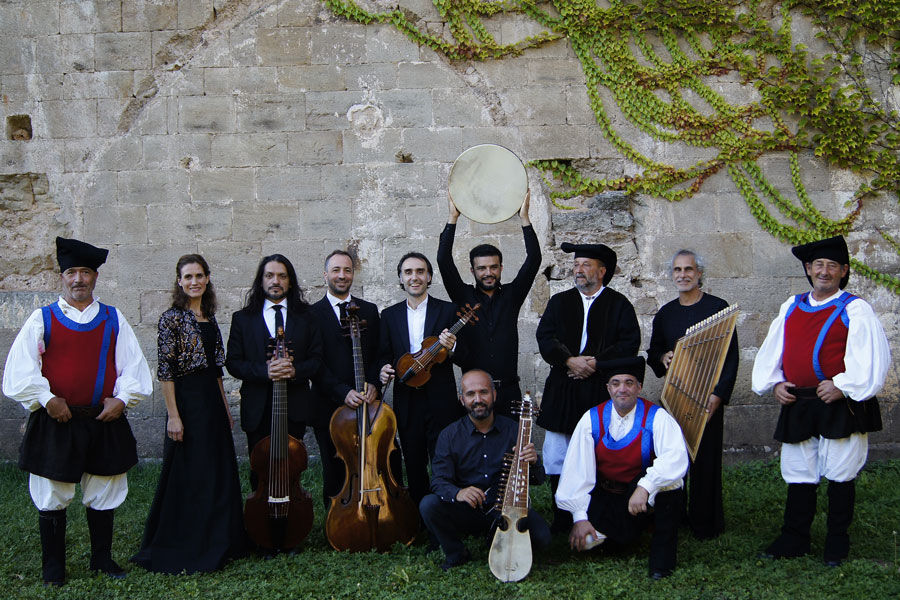Known for centuries, the Latin phrase Stabat Mater refers to a symbol of limitless motherly love and is used by artists even today. Music inspired by the text of Stabat Mater was written by both anonymous artists and high-profile composers, such as Antonio Vivaldi and Joseph Haydn. This evening, we will listen to Stabat Mater performed by excellent soloists accompanied by Il Suonar Parlante and Cuncordu de Orosei ensembles in three versions: from the work of a mysterious anonymous author to Arvo Pärt'20th-century composition. Be there to see tradition meet with modernity!
Medieval composing practice was based on the belief that musical works are created only by the grace of God, hence the artist's signature on the manuscript is superfluous. The preserved anonymous manuscripts do not tell us much about their authors. We can only enjoy unique music stored in these century-old volumes. In the case of the anonymous liturgical sequence of Stabat Mater presented this evening, the matter seems a bit more complicated. Historians were unable to tell, whether the text and the melody were created by the same author. The biography of Josquin des Prez, the most famous renaissance artist to this day, is also full of question marks. Luckily, a great deal of the composer's oeuvre has survived, although in some cases his authorship is still questioned. In his Stabat Mater, des Prez decided to make a bold use of the melody of a then popular secular song by the Dutch artist Gilles Binchois. Stabat Mater by Arvo Pärt from 1985 is also a significant piece in the history of sacral music. The mystical work perfectly corresponds to the older sacral creations.

Libera me, Domine (Sardinian tradition)
Diego Ortiz Recercada (arr. V. Ghielmi)
Anonim Upon la mi re
Virginem mire pulchritudinis (Buxheimer Orgelbuch)
Divina Consoladora (Sardinian tradition, arr. V. Ghielmi)
La Passion de Jèsus Crist (Gascoigne tradition arr. V.Ghielmi)
Stabat Mater (Sardinian tradition)
Josquin des Prez Stabat Mater
***
Gotzos de su nefressariu (Sardinian tradition)
Santino Garsi da Parma La Mutia, La ne mente per la gola, Corrente
Orazio Bassani da Parma ‘Vergine bella che di sol vestita’ alla bastarda
Arvo Pärt Stabat Mater for three solo voices and three violas
Vittorio Ghielmi – cunductor, viola da gamba
Graciela Gibelli – soprano
Carlos Mena – counter-tenor
Cyril Auvity – tenor
Il Suonar Parlante:
Rodney Prada – viola da gamba
Cristiano Contadin – viola da gamba
Vittorio Ghielmi – viola da gamba
Luca Pianca – lute
Cuncordu de Orosei:
Giovanni Rosu – voche / tenore
Paolo Burrai – mesuvoche / alta
Martino Corimbi – contra / baritone
Franco Sannai – bassu / basa
